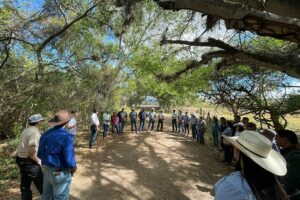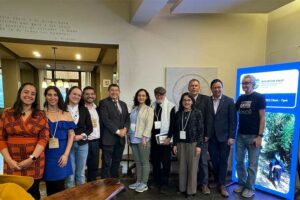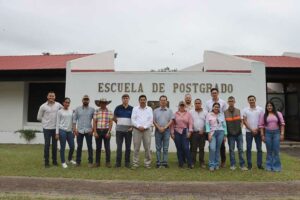Coffee-growing sectors analyze opportunities for the reduction of synthetic pesticides
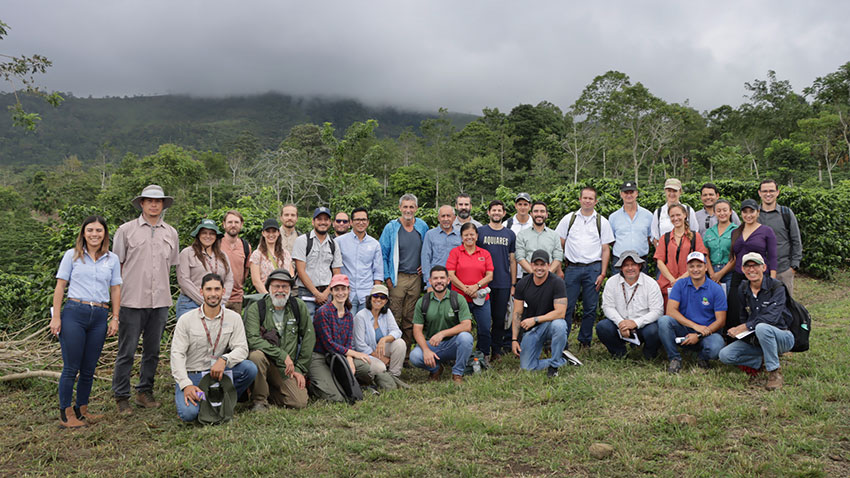
- CATIE campus hosted a multi-sectoral dialogue with government and industry institutions, coffee growers' cooperatives and national and international researchers.
- The event included a visit to one of the experimental sites in Costa Rica, established at Finca Aquiares as part of the ECOFFEE R&D initiative, led by Cirad.
Representatives from government institutions, the coffee industry and coffee growers' cooperatives, as well as academia, participated in a multi-sectoral dialogue held in Turrialba, Costa Rica, on Tuesday October 1 and Wednesday October 2, to learn about the actions carried out by the ECOFFEE for the reduction of synthetic pesticides in coffee cultivation and to share the perspectives of the different sectors related to coffee growing.
ECOFFEE is an initiative coordinated by Cirad (French agricultural research and international cooperation organization) and financed by a consortium of coffee roasters from both Europe and the United States (Ecom, Illy, Jacobs Douwe Egberts -JDE-, Luigi Lavazza, Paulig Finland Ltd, Nestlé, Starbucks and Tchibo), which seeks to develop routes for the gradual reduction of the use of synthetic pesticides to achieve a more sustainable value chain in this crop.
The meeting began on Tuesday with a visit to Finca Aquiares, one of the farms where ECOFFEE is conducting experimental trials to evaluate alternatives to the use of synthetic pesticides. The ECOFFEE initiative has implemented an experimental network with two farms in Costa Rica and two in Brazil.
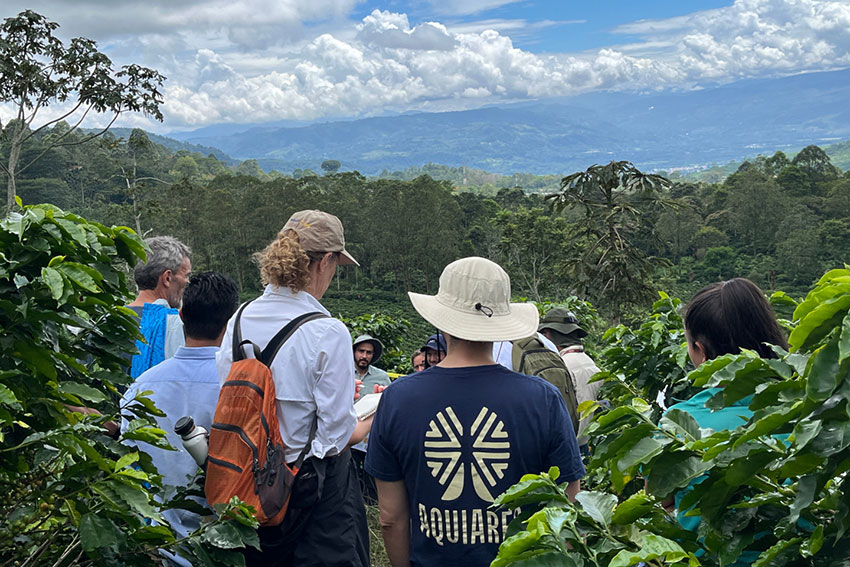
“It is an experiment of several hectares where three treatments are compared: the conventional one with the normal use of pesticides that coffee growers do, another in which the use of pesticides is reduced by half and certain pesticides are substituted, and another where there are zero pesticides,” explained Jacques Avelino, Cirad researcher and member of the ECOFFEE team. “The idea is to see if we can produce coffee with less pesticides and eventually with no pesticides at all, and if that is still profitable from a productive and economic point of view,” he added.
Afterwards, the participants moved to the CATIE campus, where thematic sessions were developed to deepen the different perspectives on pesticide reduction in coffee production, integrating the visions of the different sectors represented.
In addition to the ECOFFEE team, presentations were given by representatives of the European Commission's development cooperation; producer cooperatives such as CoopeDota, CoopeTarrazú, Beneficiadora Santa Eduviges and Finca Aquiares; the research and innovation sector such as CATIE, ECOM, INA, INTA, Rainforest Alliance and the University of Costa Rica; and government agencies such as ICAFÉ, IICA, the Ministry of Agriculture and Livestock (MAG), Promecafé and SICA-CAC.
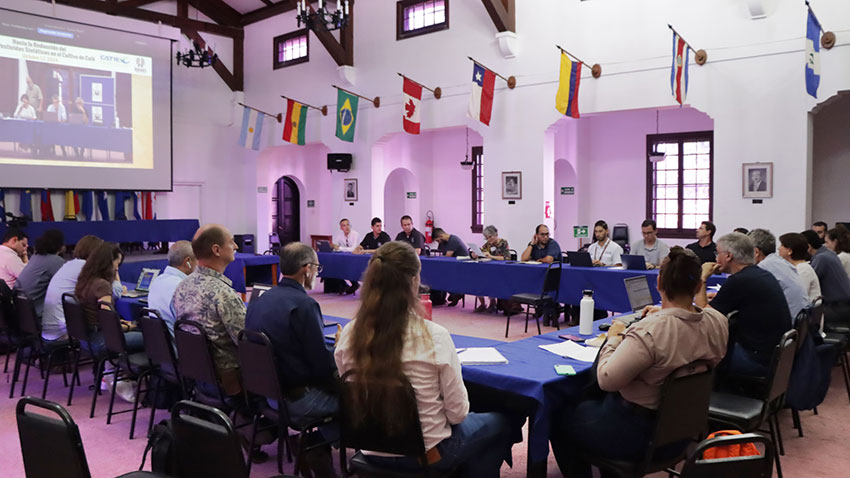
Martín Hidalgo, technical manager of the Costa Rican Coffee Institute (ICAFÉ), commented that “there is a total openness to research and development at the institute. There is a need to comply with international standards and an obligation to manage the chemical load in the production of coffee, which is such an important product for Costa Rica, and to generate an impact and a reduction in the contamination of the environment”.
“An initiative such as this is important because it makes visible the efforts made by coffee growers. The results will help producers to demonstrate that coffee production can be profitable with a reduction in the use of synthetic pesticides”, said Luis Zamora, coordinator of the Sustainable Production Program of MAG in the Western Central Region.
For her part, Sylvanie Jardinet, responsible for Development Cooperation at the European Commission, recalled that “pesticide reduction is also part of the European Union's strategies such as the Green Pact and ‘From Farm to Fork’ to reduce pesticide use by 50% and to accompany European countries and producer countries with this goal”.
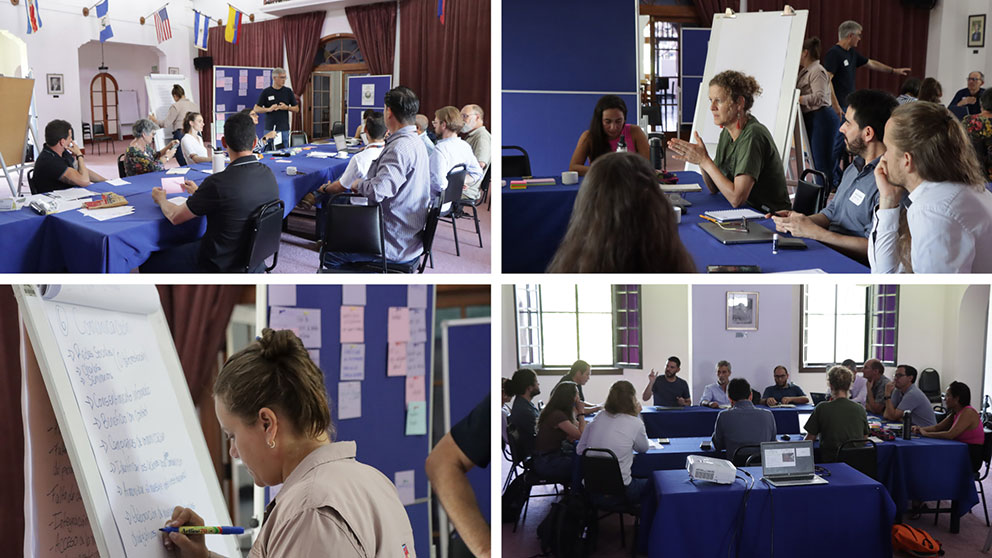
The meeting concluded with participatory sessions focused on the opportunities and challenges identified during the previous discussions, with the objective of integrating scientific and producer perspectives to propose future actions that favor the reduction of pesticide use in coffee production.
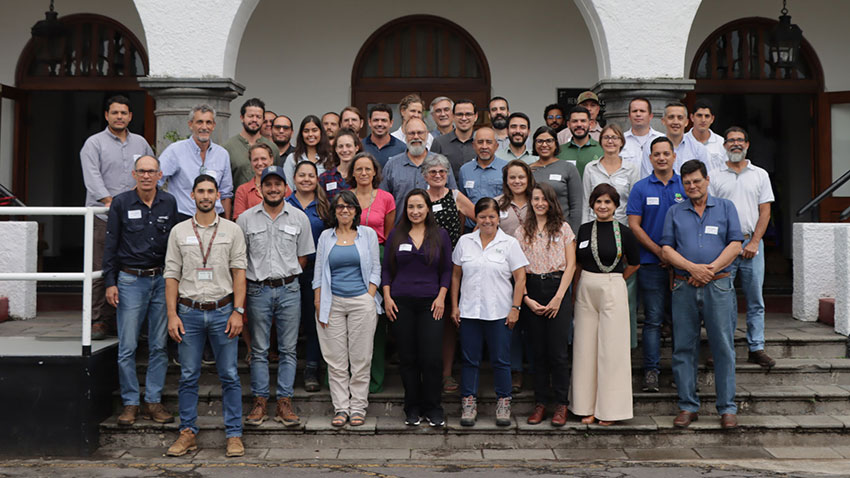
More information:
Luc Henri Villain
Cirad Researcher
Agroforestry and Genetic Improvement of Coffee and Cacao Unit
CATIE
luc.villain@cirad.fr
Written by:
Alejandro Portilla Navarro
Communicator
Communications and Marketing Office
CATIE
alejandro.portilla@catie.ac.cr

